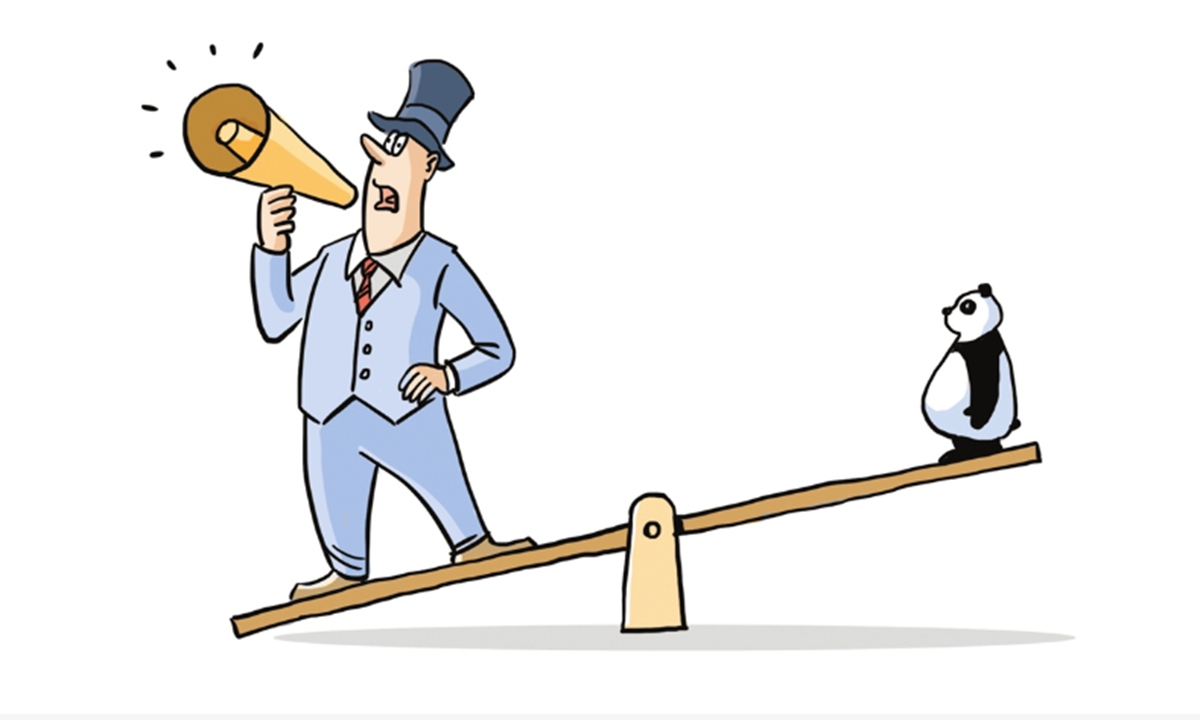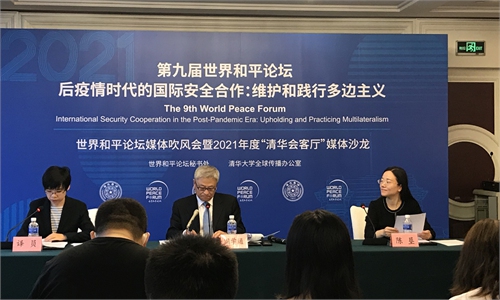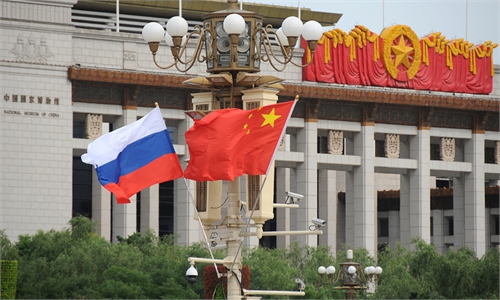
Illustration: Liu Rui/GT
While Bili believes freedom of speech is a question of ideology, Russian Ambassador to China Andrey Denisov reminded the audience how former US president George H.W. Bush lectured Russia on freedom and democracy and “we know how it works in Libya, Syria, Iraq, Afghanistan.”
It is worth pointing out what China’s model that France and the West so fear of is. China’s model strives for both the well-being of the Chinese people and human progress, and aims to create opportunities for the world through China's development. China has never sought to export its model to other countries like the West has done. But when China tried to make its stance clear, the West accused China of restricting freedom of expression.
In March, the Chinese Embassy in France responded in its official Twitter to French researcher Antoine Bondaz, who the embassy referred to as “little rascal,” as Bondaz showed support to a French senator’s planned trip to the island of Taiwan. Just on Tuesday, the Chinese Embassy in France expressed firm opposition to a French children's publication which published reports distorting Xinjiang affairs and carried racism and hatred propaganda.
China did so to safeguard its interests, while France thinks it was a violation of freedom of speech. But if France hopes China accepts everything France has done and said without voicing its own opinion, isn’t it placing a barrier on China’s freedom of speech?
China and the West hold different ideologies and they see the concepts of freedom, democracy and human rights differently. This has been the case during interactions between China and the West over the past few decades. It was during this period that Western concepts influenced Chinese society and tested China’s own definition of these concepts. Similarly, it ought to be an equal chance for the West to experience the Chinese way of thinking and accept the clash of different ideas.
What China has been doing is to end the “end of history” myth and break the value hegemony of the West. As Denisov said at the forum, “If somebody gives me just one example of the Communist Party of China imposing its ideology on anybody outside Chinese borders, I would be very grateful.”
The Russian ambassador defended China because Russia itself suffered from Western ideological exports. The purpose of ideological exports is to launch a color revolution and force a country to accept a system or model that does not fit that country’s situation. This is what France has been doing.
The French ambassador is aware that China does not seek to export its model. Coupled with China’s rise and growing influence, France, and the wider West, has begun to feel wary that its model will be challenged by that of China’s.
Sun Xihui, an associate research fellow at the National Institute of International Strategy of the Chinese Academy of Social Sciences, told the Global Times that this reflects the strong anxiety of the West toward competition between China and the West.
“It worries that China’s development model will gain more and more approval and influence on the world stage, which will challenge the West’s influence, discourse of power and the right to define rules and values,” said Sun.



